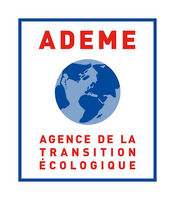Search eceee proceedings
Requesting control and flexibility: A mixed methods case study on user perspectives on smart charging
Panel: 6. Energy-efficient and low-carbon mobility for all
Author:
Frans Libertson, Lund University, Sweden
Abstract
Smart electric vehicle charging and user flexibility have been proposed as potential remedies for future imbalances in energy consumption. Smart charging programs, which integrate information, communication technologies, and energy networks, seek to maintain equilibrium between supply and demand within the boundaries of renewable energy production. They seek to allocate charging so as to avoid overloading the energy system at peak hours while reaping the benefits of charging during off-peak hours.
The success of smart charging programs, however, requires close collaboration between users and system operators. In smart charging schemes, users are expected to relinquish their control over charging while also being more flexible in their energy use. From an electric vehicle user perspective, flexibility can be defined as adapting one’s charging in time, space, or intensity to accommodate someone else’s need for electricity. However, providing flexibility will not only imply adapting current charging routines, but it may also come at the expense of the user’s own flexibility in mobility. In essence, providing flexibility may to some extent entail giving up one’s ability to accommodate all one’s mobility needs.
This study increases the understanding of how users respond to this new approach of energy use and adds to the body of knowledge on user perspectives on smart charging. In order to do so, the study focused on the functional, symbolic, and societal attributes that users ascribe to the technology. Furthermore, the study added the layer of flexibility capital to highlight the discrepancies between user attitudes toward SC and user’s actual flexibility capacity.
In general, the respondents were positive toward smart charging as a concept. However, reliability and the possibility to accommodate one’s mobility needs were found to be important factors, as the utility of smart charging was associated with a certain level of uncertainty. Participation in smart charging schemes was associated with altruism, and SC was understood as a natural development of the energy system and a new market form that could safeguard future energy supply. Smart charging was deemed to imply grid stability and better renewable energy source integration for society.
Participating in SC schemes requires the capacity to be flexible, and this capacity should be regarded as a form of capital, similar to cultural and social capital, which may be converted into money under certain conditions. The factors that enable or limit a user’s capacity to be flexible are complex and embedded in daily life. The results of this study confirmed this by showing that providing flexibility was perceived by the respondents as something partly beyond their direct control. Instead, user flexibility capacity was deemed to depend on external factors, such as working patterns, home conditions, technical knowledge, EV type, and access to charging stations. That being so, the implementation, optimization, and success of SC schemes rely more on societal structures than on user attitudes.
This study thus concludes that integrating SC schemes in daily life is far more complex than merely a matter of individual choice. Rather than focusing on general economic incentives to advance participation, future policies should be customized to individual conditions to compensate for any differences in users’ capacity to be flexible in energy use in order to avoid unfair flexibility markets.
Downloads
Download this presentation as pdf: 6-002-22_liberton_pres.pdf
Panels of
1. Dynamics of consumption: less is more?
2. Efficiency and beyond: innovative energy demand policies
3. Policy, finance and governance
4. Monitoring and evaluation for a wise, just and inclusive transition
5. Towards sustainable and resilient communities
6. Energy-efficient and low-carbon mobility for all
7. Policies and programmes for better buildings
8. Innovations in products, systems and building technologies



























